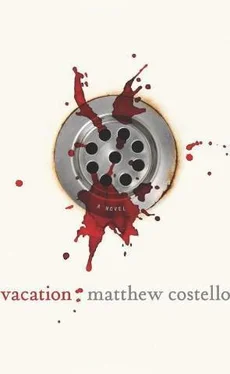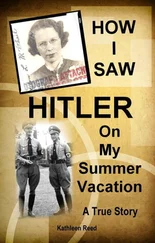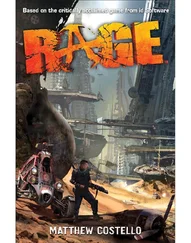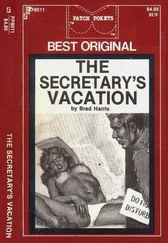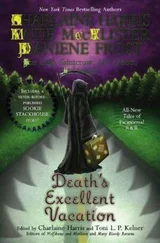He’d begin slowly, with only a few pounds of weight.
And then, with each slow up-and-down movement, he’d add more weight, staring at his damaged leg, wishing it stronger, better.
He took a breath, and began to raise the bar.
* * *
Jack heard Christie’s steps coming down the stairs.
He let his right leg slide off the bar. Not bad, he thought. Not anywhere as strong as the left leg, but all things considered…
He grabbed a towel dangling from the weight machine and turned to Christie.
“How’s it going?” she said.
They had fought over that question during those first weeks. How are you? How’s the leg? Are the dreams over? Did you sleep through the night?
They’d had fights.
He wished she would stop asking.
Until he realized that Christie was scared and worried. He forced himself not to react.
Now, with weeks of rehab behind him, he could hear her question, and answer it. No problem.
“Good.” He smiled. “In fact, I’m pretty damn impressed. All things considered, my leg seems to be doing really well.”
She took a few steps closer.
The exposed lightbulb caught her face. “That’s good. Real good. Though at the risk of sounding critical—”
Jack rubbed his face, mopping up the beads of sweat. The floor around him was dotted with the drops.
“It stinks down here. You really need a hot shower, my friend.”
Jack laughed. The rough patches they had gone through were fading. He never told her everything about that night. He knew—and she knew—he never would.
The attack. Rodriguez. Shooting him because it had to be done. Then, being stuck here, working his ass off to get better, to get back to being a cop.
“I hear you, boss. I’ll hit the showers ASAP.”
Christie took another step closer to his machine. Only then did Jack notice that she had her hair pinned back. It always made her look like the teenager he’d dated in Bay Ridge.
“You done doing the school-thing with the kids?”
“You mean trying to teach them? Not sure I’m much of a teacher. Think we should reconsider some of the families getting together, getting our kids together—”
He started shaking his head before she finished.
“No. It’s better they stay here. Better that than bounce around to other people’s houses.”
“You mean trapped here.”
He heard the edge in her voice. It was an edge that he had grown used to. Perhaps it was his recuperation, perhaps the world she was forced to live in, perhaps it was his paranoia. Whatever, it was getting too easy for them to snap at each other.
“I’m sorry,” she said. “I just wish we could think about it.”
He took a breath.
“Okay. I’ll think about it.”
“Right. Sure.”
Then a shrug, and he watched her walk up and out of the basement.
* * *
Jack let the weights drop with a loud clang to the base of the machine. And he sat there, sweating in the shadows. Thinking…
He knew he looked at things differently than most people. Most people could block out the realities of this new world that they lived in.
With enough fences, enough guards, enough safe sectors, life could almost seem normal.
But even some safe sectors in the city’s outer borough were no longer safe. Chunks of infrastructure—water, electricity, government—fell apart. Power failures, sabotage to the city’s water supply.
Chaos—always close, always one attack away.
The pressure from the Can Heads always there, always mounting.
Jack got up and moved through the hallway to the door that led to the basement and the adjoining garage. Like most houses, the door to the basement had been reinforced. Double locks, and on the interior side, metal plating. Every house was vulnerable.
Not so different from when he grew up in Brooklyn, and their house suddenly had rats. His father saw the telltale signs—the small caches of food that the rats dug out off the basement shelves and planted behind furniture, the electrical wires chewed through.
Then his dad found a sea of their pellet-sized scat under a radiator, revealing that a tribe of rats, with their lousy vision but incredible gnawing teeth, had found a new home.
And his father, a veteran of twenty years as a street cop, took on the rats.
Rat traps with the poison appeared. Any opening to the outside, the slightest crack, was lined with a thick wire mesh that would dig into any rat even as they elongated their flexible bodies to sneak in.
Dead bodies appeared both in and out of the house. One went undiscovered until everyone got a whiff of the overwhelming stench.
Now on the job like his old man, years later, Jack had smelled far worse.
But he’d thought of his dad and his rat-fighting when he moved to Staten Island with Christie and the two then toddlers.
Every crack sealed.
Doors reinforced.
Motion detector lights and alarms. Nothing expensive, but all good, reliable stuff.
Backup generator. Everyone had one these days.
Double locks everywhere. Metal panels that could be closed tight over the first-floor windows at night.
And weapons?
There were the weapons under lock and key that Christie knew about. Then there were the weapons she didn’t know about.
Jack had thought through a variety of scenarios, and safely secreted around the house other supplies of ammo and guns.
Not unlike the rats and their caches.
Jack unlocked the trunk of the Ford Explorer.
It was five years old, and he maintained it himself and had as much confidence in it as he would in something brand new. Maybe more.
He’d done all the modifications—expensive and time-consuming—himself. The standard safety glass had all been replaced with reinforced shock-absorbent windshields and side windows, the same glass they once used in the armored cars of the well-heeled in São Paulo.
São Paulo? Gone years ago.
A layer of sheet metal covered all the vehicle’s side panels and undercarriage. The hood got a double layer of the same steel. The SUV would be better than a Humvee in an accident.
Or an attack.
Tires were a problem. Even the best tires could be ripped and gouged and turned into a useless piece of spinning rubber.
But the latest steel-belted battle tires used on the NYPD’s patrol vehicles were layers thick. A puncture, even a good-sized one, couldn’t come close to deflating them. Jack made sure he carried two spares.
He unlocked the compartment hidden under the mat of the luggage area, revealing the cases containing guns and ammo. Two S&W .40 pistols, a pair of Glock 22s, and—in two pieces—an M16. Beside the guns, a foam “egg shell” held three compact C-4 explosives—“door-busters” the cops called them, all fitted with timers.
He shook his head.
If Christie saw all this, she would freak. Was it just paranoia? Or was bringing all this firepower borne of years of being on the streets, while the Can Heads kept on coming?
He’d wear his service revolver on his ankle as well. Christie had grown used to that.
“Just like your father,” she had told him. “You feel undressed without your gun.”
He’d smile at that.
And carefully not say anything in response.
Undressed? No. More like unprotected.
He slowly shut the back hatch door, gently, so no loud thump filtered upstairs.
Jack tried to do a good job of acting enthused about the trip. His family deserved that.
He walked to the side of the car—near the front, just below the engine—and knelt down. The SUV had been driven around for a few days, and he wanted to see if the most recent alterations he’d made to the underchassis looked completely intact.
Читать дальше
